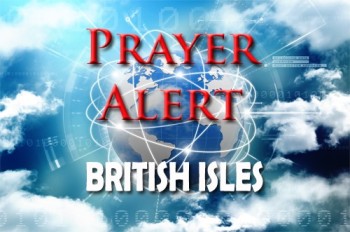Displaying items by tag: policy
£3.5bn plan to halve homelessness unveiled
The Government has unveiled a £3.5bn national plan to end homelessness, aiming to halve long-term rough sleeping by 2029/30. Housing secretary Steve Reed described homelessness as 'one of the most profound challenges we face’, promising a future where it is 'rare, brief, and not repeated’. The strategy includes a new duty requiring prisons, hospitals, and social care to work together, preventing people from being discharged straight onto the streets. It also pledges to halve first-night homelessness among prison leavers, reduce the number of families living in B&B accommodation, and direct £50m to councils to create tailored action plans. A £124m supported housing scheme is expected to help 2,500 people off the streets. However, charities warn the plan falls short, noting that only £100m of the funding is new and highlighting major gaps, particularly around prevention, frozen housing benefit, refugee support, and the lack of available social homes. MPs and homelessness organisations say the strategy appears rushed and insufficient to meet the scale of need, with record numbers of people (especially children) expected to be homeless this Christmas.
Rachel Reeves' 'mansion tax' plan
Reports suggest Chancellor Rachel Reeves may extend capital gains tax (CGT) to primary residences above a set threshold, sparking debate over a potential 'mansion tax’. Currently, homeowners pay no CGT when selling their main residence, but proposals would remove this exemption for higher-value properties. The Times estimates a £1.5m threshold could affect around 120,000 households, with bills reaching hundreds of thousands for long-term owners. Critics say it punishes older homeowners downsizing, discourages market mobility, and risks pushing wealth abroad. Many argue it unfairly double-taxes families already burdened by stamp duty. Property experts warn it could freeze the housing market, reducing sales and Treasury income. Supporters say it could help fill the £51bn fiscal shortfall while targeting wealthier households. Reeves has already cut CGT allowances in recent budgets and raised rates on shares and property. An announcement could come in the autumn Budget. Opponents argue re-banding council tax would be more effective and less disruptive.
Anglicans in Wales urged to revisit same-sex blessings decision
The Church in Wales is set to reconsider its stance on same-sex blessings, with the experimental provision allowing blessings for same-sex couples due to expire in September 2026. While the Church still does not permit same-sex marriage, the blessing service was introduced in 2021 as a compromise, allowing clergy to decide individually whether to conduct such services. The Archbishop of Wales, Most Rev Andrew John, has called for prayerful and open discussions as the denomination discerns its next steps. A series of meetings will be held across Wales, providing clergy and congregants a chance to share their perspectives. Options under consideration include ending the practice, extending it, or introducing a formal service of same-sex marriage within the Church. The Archbishop emphasised the need for respectful engagement with one another, Scripture, and tradition. The Scottish Episcopal Church already permits same-sex marriage, as do the Quakers, Unitarians, and the United Reformed Church.
USA: Trump’s shocking cabinet appointments
Donald Trump has initiated a bold and controversial strategy for his return to power, unveiling cabinet appointments which embody his disregard for traditional governance. These selections, including individuals with histories of legal trouble, extremist ideologies, and controversial actions, aim to dismantle governmental structures Trump perceives as obstacles. Key appointments, such as Pete Hegseth as secretary of defence, reflect his intent to politicise institutions like the military, while figures like Robert F Kennedy Jr as health secretary highlight his disdain for scientific consensus. Others, such as Vivek Ramaswamy and Elon Musk, are to downsize federal agencies radically under a vaguely defined ‘department of government efficiency’. Trump’s intent to bypass Senate confirmation through recess appointments signals his push for one-man rule. His nominations seem to be not only instruments of policy but tools of intimidation and revenge, targeting perceived enemies and undermining traditional checks and balances in favour of centralised authority.



